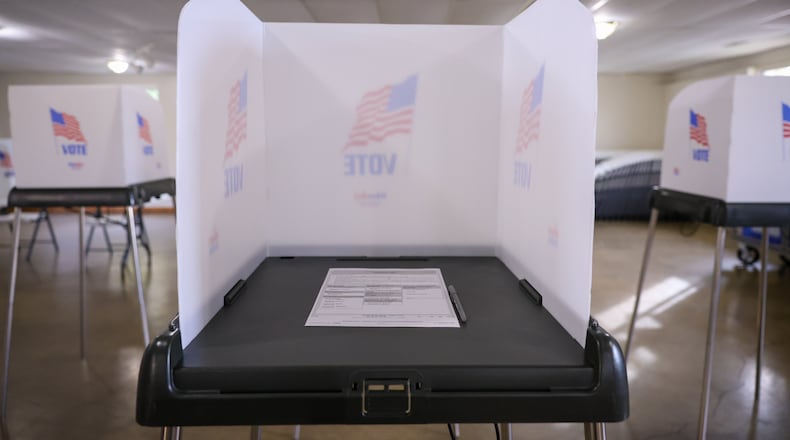A 30% turnout is solid, though Clark County Board of Elections Director Jason Baker said they always want to increase that number. The board is always prepared for a larger number, he said.
“I can see the county sales tax drew some people out and of course the local [issues], school board and a couple of the townships had some tax issues on there as well,” Baker said. “There were some local interests this election.”
The area with the largest turnout was precinct T-5 in Springfield Twp., who rejected the sales tax by 87.3%. Neighboring precinct T-3, also in Springfield Twp., rejected the sales tax by the largest margin, with 88.43% no votes. The jail is proposed to be around the area of those precincts.
In total, 25,275 people of 83,898 registered voters cast ballots in Clark County, with most being Election Day voters.
The last “off year” November election was 2021 (2024 was a presidential year and 2023 had statewide issues), and the turnout was 21.5%, Baker said.
Polls were fully staffed and there were only minor hiccups, Baker said. Some voters who live outside Springfield complained about the city commission race not appearing on their ballots, which is the case because although some may live in the city’s school district, they are outside city limits.
The News-Sun solicited voter views on this election via a Google form, finding the majority of 89 responses (some duplicates) were concerned about increased taxes. Many said they opposed the 0.5% 20-year increased sales tax to build and operate a new county jail because they disagreed with the location, were concerned about transparency in the process and did not want another new tax.
“Our property taxes are about to skyrocket and the county is doing nothing,” Moorefield Twp. resident Shannon Long said.
Multiple sales tax opponents expressed dissatisfaction with the county’s criminal justice system, and many Springfield residents said they felt the city did not hear their concerns.
Many respondents said they voted to support the parks and enjoy using them, while others said increasing personal expenses factored into their no votes.
While the 0.6-mill, 10-year levy for the parks was not an additional tax, it was a replacement resetting the millage to reflect modern property values rather than those from 2011. If it had passed, property owners would see an additional cost of around $4 to $7 annually, Director Leann Castillo told this newspaper.
While some supported school levies, others said they felt they didn’t have the budget to pay more taxes. All school levies failed on the ballot in Clark County. Clark-Shawnee Local School District asked for a 1% income tax and Northwestern Local School District asked for 5.32 mills. Springfield Local School District’s levy failed, but the district said it didn’t plan to collect on it even if it passed.
“School levies have become unaffordable, especially when stacked on top of the relentless rise in everyday costs — food, utilities, insurance, property taxes and health care,” Sharon Sweeney, a Springfield Twp. resident, wrote. “Families are being squeezed from every direction and adding more financial burden through levies is simply unsustainable.”
Springfield resident Jason Fairchild said minimum wage should be raised to give taxpayers the ability to afford increased levies.
“Ohio is lagging way behind and everything you see wants to increase wages slowly over many years to 15 dollars,” Fairchild said. “We need 15 now and then a slow increase annually from that point.”
About the Author

